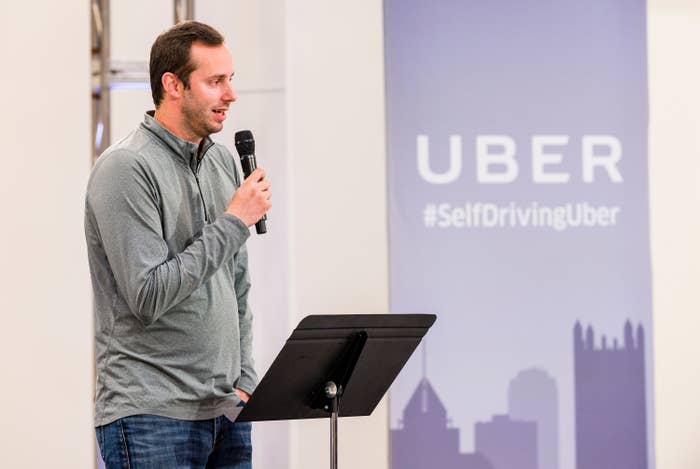
Former Google engineer and self-driving car expert Anthony Levandowski was indicted by a federal grand jury on Tuesday for the alleged theft of trade secrets that later became the basis of a startup he sold to Uber Technologies.
The 33 criminal counts announced by the US Attorney’s Office of the Northern District of California are the latest twist in a saga involving two Silicon Valley giants battling for supremacy in the race to build autonomous vehicles. In 2017, Google’s self-driving car unit, Waymo, sued Uber following the ride-hailing company's purchase of Otto, Levandowski’s startup. The companies settled in early 2018, ending a high-profile trial and a particularly ugly public relations battle.
“None of us has the right to fill our pockets on the way out the door. Theft is not innovation.”
In his office’s indictment, US Attorney David L. Anderson noted that at the time of Levandowski’s resignation from Google’s Waymo in 2016 he downloaded “from secure Google repositories numerous engineering, manufacturing, and business files related to Google’s custom LiDAR,” a light-sensing technology crucial to self-driving cars, as well as circuit board schematics and other internal documents.
“All of us have the right to change jobs,” said Anderson in a statement. “None of us has the right to fill our pockets on the way out the door. Theft is not innovation.”
Anderson’s office noted that the indictment came as a result of an investigation from the FBI. If convicted, Levandowski faces a maximum sentence of 10 years and a fine of $250,000 plus restitution for each violation. He is set to be arraigned Tuesday afternoon.
“We’ve cooperated with the government throughout their investigation and will continue to do so,” an Uber spokesperson said in a statement.
A Google spokesperson did not immediately return an emailed request for comment.
Levandowski left Google in early 2016 to launch Otto, a self-driving trucking startup. Within months, Uber acquired Otto for an estimated $680 million — a transaction that raised several eyebrows around the tech community given how long the company had been in existence.
Google later sued Uber, claiming that the ride-hailing company had been complicit in Levandowski’s theft of its materials. The case went to trial for four days in early 2018, and led to testimony from Travis Kalanick, who was then the CEO of Uber. Levandowski avoided testifying by invoking the Fifth Amendment against self-incrimination before the two sides eventually settled.
The judge in that civil case, William Alsup, later referred the case to the US attorney’s office for further investigation into the theft of trade secrets based on the evidence presented in the trial.
